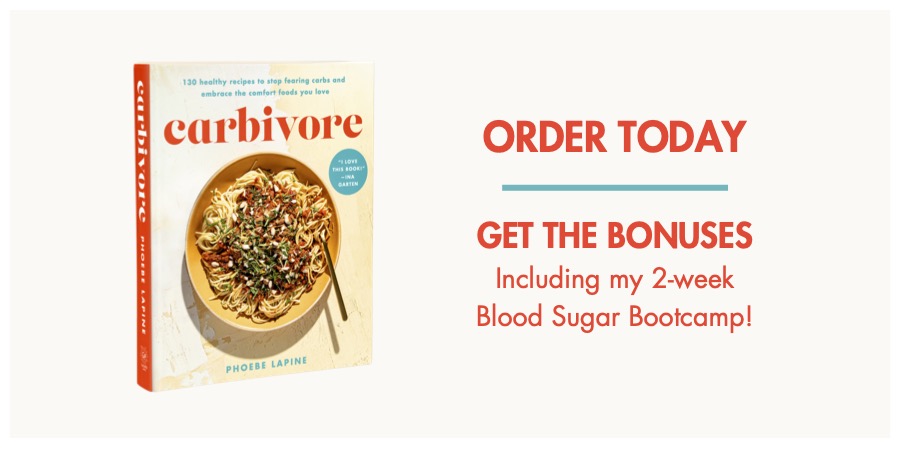
People get so squeamish about the scoop on their poop, but it’s the easiest way to gauge how your gut is performing on a daily (and sometimes hourly) basis. You’ve got to take stock before you literally flush those valuable clues down the toilet! And let’s just say that if you can identify 4 out of 5 of your Just Salad toppings from that day’s lunch, it’s probably time to make some changes.
My stomach issues cleared up remarkably quickly after I took gluten out of my diet. But part of being autoimmune and having a generally sensitive system, means that my digestion still sometimes gets a little janky without my really knowing why.
Back in March, I got my food choices even more under control by partially weaning myself off animal products and recommitting to shopping at the Farmer’s Market. But this month I want to give my gut the tools it needs to fight my battles for me and properly process the things I’m putting in it. Though diet is certainly an important factor, I also want to focus on not just what I’m eating, but how I’m eating it.
Read on for more on my eater’s digest experiments. A poop log may or may not be involved, but I promise not to share it. At least not until they invent a monkey-holding-its-nose emoji to pair with the smiling poo.
From one healthy hedonist to another,
Xo
Phoebe

I kicked off my October wellness challenge a little early with a fascinating Wellness Wednesday hangout with Dr. Robynne Chutkan, whose latest book, The Microbiome Solution, is all about how our trillions of bacteria truly hold the key to our health. The book is full of actionable tips on how to live dirty and eat clean for the sake of preserving your gut garden of helpful microbes.
Since I already eat a lot of plants, I thought I would dig into some of her other recommendations for living dirtier, like keeping my window open, adding some plants to the house, and washing my hands with just gentle soap and water. From the sound of it, my transition to natural beauty products was a huge leg up for my digestion. In our chat, Robynne explains the gut-skin connection and how our interaction with the outside world impacts our microbiome. You can watch the whole thing here.
I’ve also upped my intake of natural probiotics like kefir, sauerkraut and kimchi. To see how adding these good bacterial transients to my diet actually impacts my gut, I’ve been getting my stool tested once a month by UBiome. Their system is super easy – you can even get a monthly subscription to see how you’re doing over time!
Towards the end of the month, I’m super excited to have the power couple of gut health as guests for another Wellness Wednesday. Erica and Justin Sonnenburg are authors of the bestselling book, The Good Gut, and a wealth of information on the role bacteria plays in the body. If you have questions, let me know in the comments section and I can field them during the hangout!

There are many digestive supplements and probiotics that can help repair your system. But it often doesn’t matter what you eat, if you’re not chewing your food properly. Saliva is such an important piece of our digestion puzzle and we often swallow our food down so fast that our bellies are forced to do most of the work.
Mindfulness is part of that equation. Because when you eat in a quiet environment and aren’t distracting yourself with spreadsheets or Sex & The City re-runs, your body can devote more energy to actually processing the food you’re putting in it.
The goal of this month is to understand the digestive system and all the little things that improve it (chewing your food until it’s mush while wearing a moomoo) and impede it (inhaling your dinner semi-whole while your stomach cries uncle in the world’s most restrictive pair of Spanx).
So part of my goal is to chew my food as much as possible, even if the idea of making steak smoothies in my mouth makes me want to gag. I’m also going to try to really focus on eating and savoring my food. Perhaps not watching TV while eating will prevent me from lying down like a beached whale 5 minutes afterwards, which is also not great.
Have you had any digestion successes or failures? Do you wonder if probiotics are actually effective? Got any burning questions on the scoop on your poop?
This is a safe space, so let er rip in the comments section!
The Wellness Project is now a book! It’s part memoir, part health primer, with 20 inflammation fighting recipes for clearer skin, better digestion, and a thriving thyroid. (Because who doesn’t wake up in the morning wanting a thriving thyroid?!). You can read more and preorder here. To read up on past experiments and get more tips from the trenches, click here.

Probiotics, Prebiotics…who can keep track? Any info on what you need and the brands that are producing high quality, live bacterias would be great!
Thanks Lisa!! Packaged probiotics are a tricky business. I was on medical grade prescribed by my doctor but my insurance no longer covers it 🙁 I don’t exactly trust what’s in the regular store. As for prebiotics, really it’s just any vegetable! The idea is that you need to give the probiotics something to latch onto instead of washing right through your system, and that thing is fiber. I would recommend eating your probiotics in the form of kefir, yogurt, or best of all, kimchi/kraut, as they are a double whammy pre/probiotic! A tablespoon of kraut has so much more than what you’d get in a pill. Hope this helps xo
Great advises Phoebe. We try to take in some probiotics through yogurt (and we eat A LOT of yogurt here in Greece, either strained -the type you know as Greek yogurt abroad- or not. The latter is usually a traditional goat/sheep milk yogurt made by small local producers, sold in old-school ceramic containers. It has a “skin” on top created in the natural cooling process, to verify the authenticity. Mirella hates it, but I love it:) So I always skim the top of the yogurt:)
Regarding kimchi we’ve read how good that thing is, but we don’t have it hear. We do have other pickles though, and we also make some ourselves from time to time:)
And we also have lots of olives, which are probiotic as well;) Wish we could take you with us in a Greek farmer’s market to see and taste the variety of delicious olives!
What you also mention about chewing properly is very very important. We often eat in a mechanical manner and forget the importance of proper chewing. Mirella is far better in doing this right, while myself I’m still struggling to keep in my mind that I must CHEW longer:)
Thank you for another great article!
xoxoxo
I used to eat yogurt every day for breakfast but I’ve developed an intolerance to lactose and have had to cut it out….which is sad 🙁 but I have to say since avoiding it (I still eat cheese sometimes) that my stomach acid has drastically decreased and my skin has cleared up. So….my friend taught me how to make kombucha and gave me some starter and a big chunk of her scoby. I’ve been relying on this for probiotics – I’m not sure it’s enough, but I sure hope so! I love fermented foods like kimchi and sauerkraut but I don’t eat it every week. I read the comment above about olives…I didn’t know they had probiotics but I’m glad they do because I eat them like nobody’s business :-)!
Thanks for writing in Sarah!! Have you tried lactose-free kefir? There are a bunch of probiotic products like this now that are very low lactose. I’d be curious if you had a reaction. I sometimes don’t digest dairy very well, but I’ve had great success with the kefir in my morning smoothie. I’m very impressed by your homemade kombucha skills! It’s on my resolution list for next year… 🙂
Thanks for always keeping this stuff friendly, Phoebe. I’ve been struggling with my gut for a few years since being diagnosed with autoimmunity (Ulcerative Colitis is my brand, but I don’t let it define me). I eat lots of probiotics (kefir and homemade kraut mostly) and veggies are a huge part of my diet. When it comes to meat, I source from local, grass fed options and usually eat about 1/3 of what my boyfriend does. We cook at home primarily and are picky when we eat out. Gluten was the first thing to go and I am finally acutely aware of my “gluten cycle” when I accidentally consume some. It hits me for about 5-6 days usually! I’ve enjoyed all of the perks of cleaning up my diet over the past 2 years like skin clearing, weight loss, clear-mindedness, energy etc. My problem is that my bowels are still incredibly loose and my gut still feels swollen and inflamed. I’m beginning to think that stress has a HUGE role to play in my symptoms and have been working towards making a meditation/yoga routine part of a daily habit. Deep breathing does wonders throughout the day. Being reminded by your lovely words that I’m not alone in this journey is priceless. Thank you so much for sharing the way you do. You are a huge inspiration in so many ways!
To our Health and Happiness!
Rather
Wow Rather! What an amazing note.Thank you so much for sharing your story. I love the term “gluten cycle.” That’s totally what it is. And it takes time to notice the signs. I can feel mine immediately now and see how it takes off. Have you ever done a hardcore elimination diet? I read Amy Meyere’s Autoimmune Solution and she’s a big believer in eliminating all grains,legumes, corn eggs, among other things, for 30 days to allow your leaky gut to heal. This sounds like a nightmare to me, but perhaps worth a 30 day experiment if you haven’t gone all in before. That said, I’m with you: stress is SO corrosive for the gut! That’s the subject of this month’s challenge! Thank you so much for reading and the positive feedback. xoxo